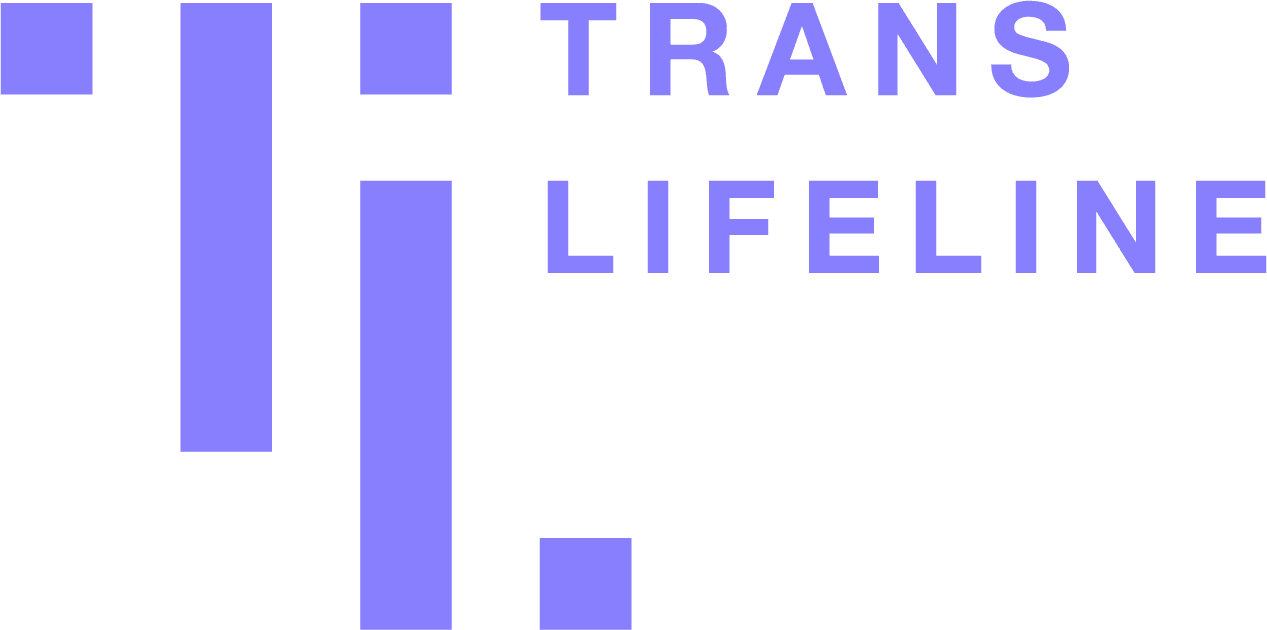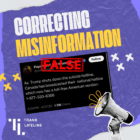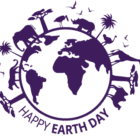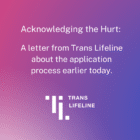Transgender Day of Remembrance 2024
November 20, 2024
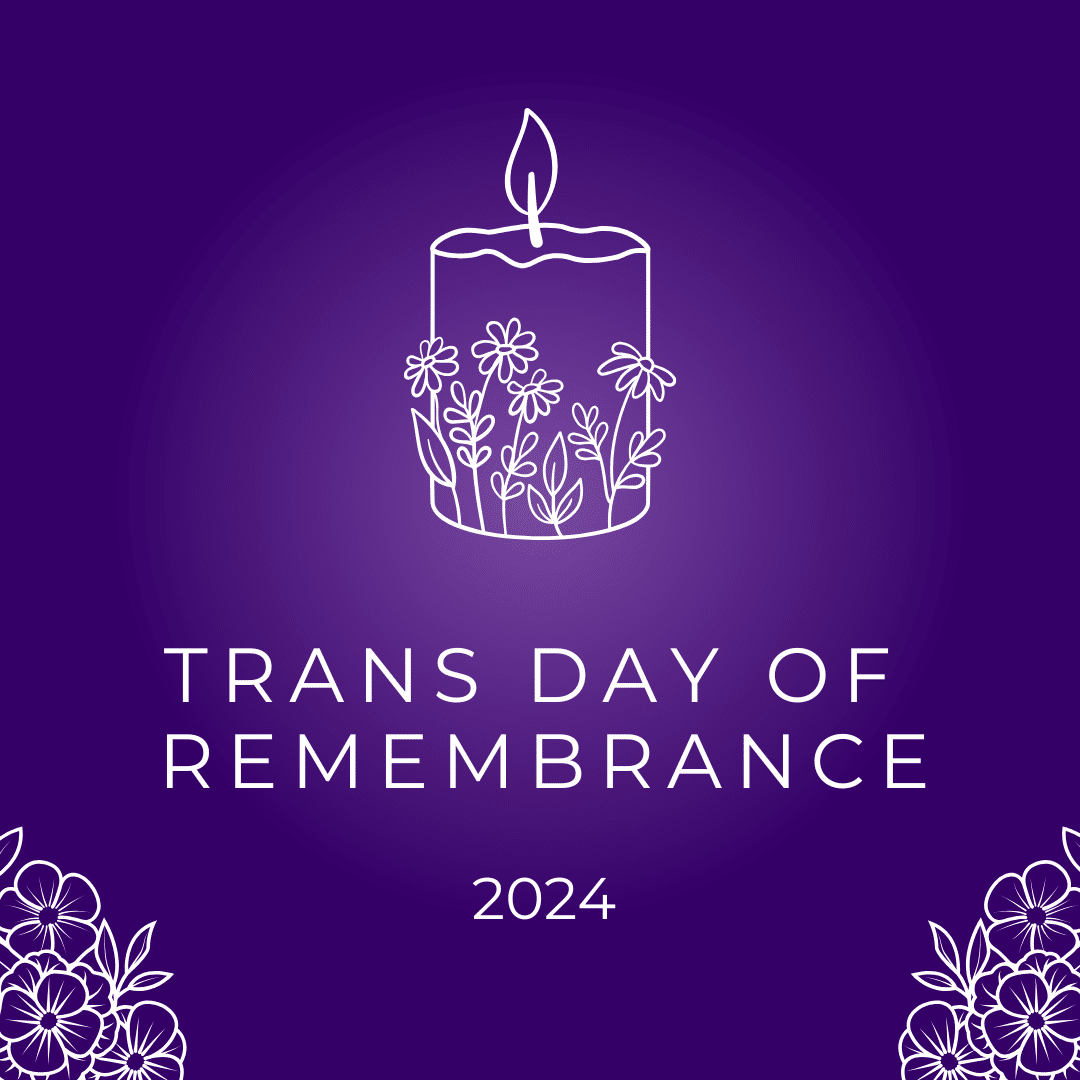
Trans Day of Remembrance (TDOR) was created in 1999 by trans advocate Gwendolyn Ann Smith as a vigil to honor Rita Hester, a Black trans woman murdered in 1998. TDOR continues annually to remember trans people lost to anti-trans violence. This violence is not random—it’s the direct result of systems of white supremacy, misogyny, racism, xenophobia, and transphobia that target us.
The rise in anti-trans sentiment we see today is tied to a broader movement of control rooted in white supremacy and patriarchal structures. Anti-trans laws, attacks on healthcare, and hate crimes are all part of this oppressive agenda. For example, the push for anti-abortion bans and the rise of Christian nationalism aim to control bodies, particularly those who challenge traditional gender roles. Black trans women and trans women of color are especially vulnerable because they exist at the intersection of multiple oppressions: racialized violence, sexism, anti-Blackness, and anti-trans violence.
White supremacy fuels these attacks by constructing a rigid social order where whiteness, cisness, and masculinity are prioritized, while racialized, feminized, and gender non-conforming people are devalued and targeted. Historically, Black and Brown bodies have been seen as disposable, and this continues to drive violence against trans women of color today, further supported by a political climate that seeks to erase their very existence. Misogyny and sexism amplify this violence, with trans women and femme trans people being disproportionately affected by transmisogyny, deepening their vulnerability.
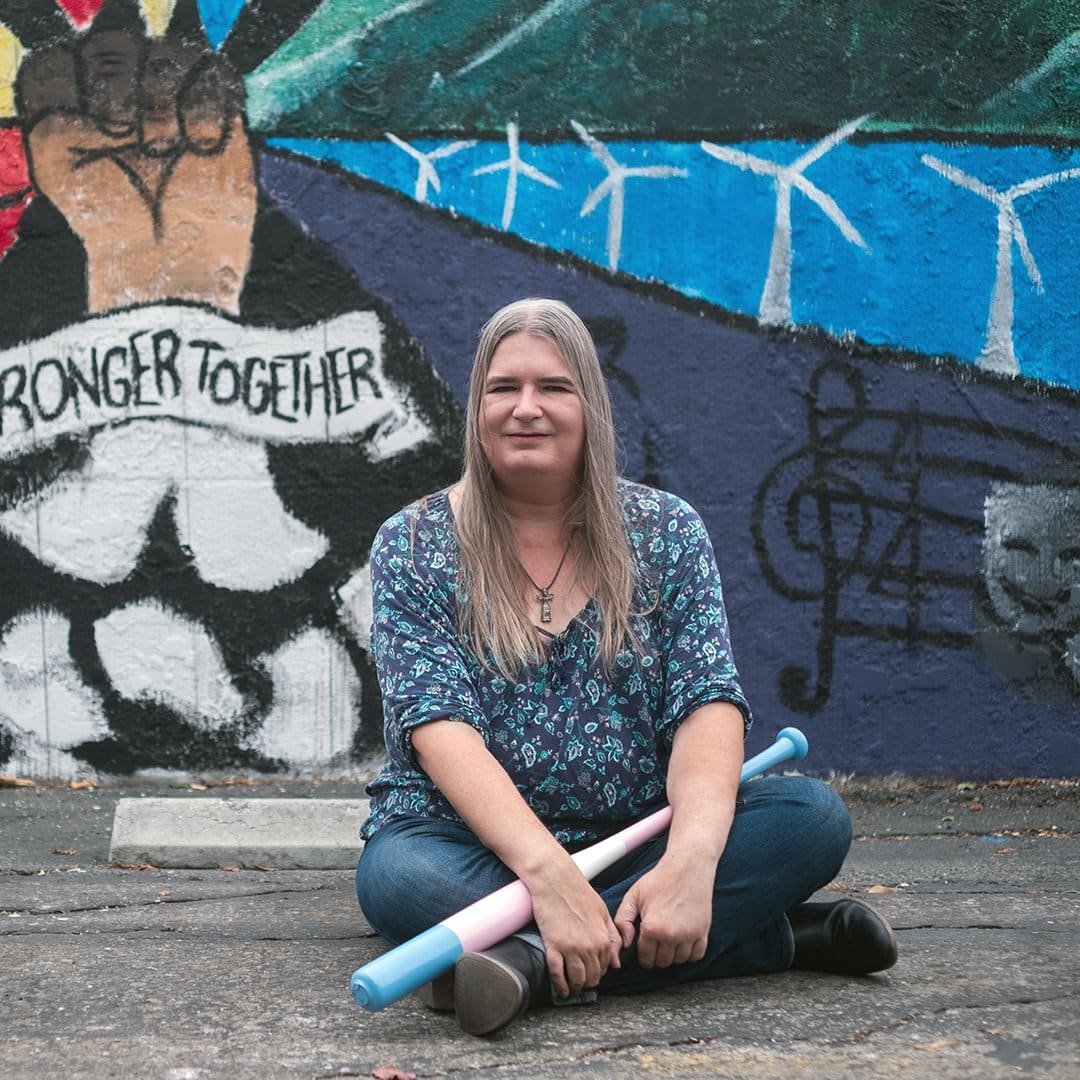
Transgender Day of Remembrance.
Photo by Tristan Crane.
Christian nationalism, which seeks to impose a narrow, exclusionary vision of society based on a white, Christian, heteronormative standard, plays a powerful role in the anti-trans rhetoric we face. These attacks are not just about religion—they’re part of a larger project to consolidate power and maintain a white, cisgender, heteropatriarchal order.
Xenophobia compounds these dangers by disproportionately impacting immigrant and undocumented trans people, especially those fleeing persecution and violence. They often face heightened risks due to their undocumented status, leaving them more vulnerable to violence and discrimination, further exacerbating barriers to healthcare, employment, and legal protections.
Now, more than ever, we must continue to push forward and fight for our future, our dignity, and our rights.
Trump’s re-election as president of the United States underscores the deep-rooted systems of white supremacy, misogyny, racism, xenophobia, and transphobia that shape our society. His platform is built on these pillars, and we now face an era of increased hostility and dangerous policies aimed at erasing our rights. Hate and barriers to essential healthcare and protections will only intensify, yet we are no strangers to survival. For centuries, we have adapted and resisted. The more they try to silence us, the stronger and more resilient we grow.
It’s understandable to feel overwhelmed or even demoralized by the election’s results and the harsh reality of what lies ahead. The weight of these challenges can feel crushing, and it’s important to give ourselves permission to feel these emotions—grief, anger, fear—without judgment. However, we must not allow despair to halt our progress. We are a community forged in resistance, and we know how to fight for our survival. We have done it before, and we will do it again. The stakes are high, but so is our determination. Now, more than ever, we must continue to push forward and fight for our future, our dignity, and our rights.
Supporting trans communities can take many forms:
- Donate to organizations like Trans Lifeline to help fund critical services for trans people in crisis.
- Volunteer your time or skills to assist in providing support.
- Create mutual aid funds to directly address immediate needs within the community.
- Become politically active by advocating for trans rights and pushing for policy changes.
- Protest against anti-trans legislation and discrimination.
- Hire trans people and pay them well, ensuring fair wages and workplace inclusion.
Trans Lifeline was founded ten years ago with the mission to help trans people survive and thrive. In these challenging times, our mission is more urgent than ever, and community remains our greatest strength. Every person has a role in this fight, whether trans or not—your support matters. Together, we will resist, protect each other, and build a future of dignity and safety. We invite you to stand with us, uplift trans voices, and continue supporting the trans people in your life.
The Trans Remembrance Project lists the names of lives lost since last year’s TDOR. Those named in the list include people who self-identified as trans and/or non-binary, as well as individuals who did not explicitly identify as such but whose gender expression was likely a factor in their murder.
Below, we share a list of resources for those seeking support. Whether you are navigating domestic or intimate partner violence, needing assistance to relocate from hostile states, looking for affirming virtual communities, or simply wanting to learn more about the history of TDOR, we hope these resources offer a pathway to strength and community.
Resources
Domestic & Intimate Partner Violence
- Get Help Now
- The Network/La Red: 24-hour hotline provides confidential emotional support, information, referrals, safety planning, and crisis intervention for LGBTQIA2S+ folks, as well as folks in kink and polyamorous communities who are being abused or have been abused by a partner. All hotline staff are trained in domestic violence, peer counseling, crisis intervention, and safety planning. You don’t have to leave or want to leave your relationship to get support.
- U.S. National Domestic Violence Hotline: Offers phone support and an online chat feature available. Operating around the clock, seven days a week, confidential and free of charge, the National Domestic Violence Hotline provides lifesaving tools and immediate support to enable victims to find safety and live lives free of abuse. Highly trained, experienced advocates offer compassionate support, crisis intervention information and referral services in over 170 languages.
- StrongHearts Native Helpline is a domestic and sexual violence helpline for Native Americans and Alaska Natives. Call 1-844-762-8483 or visit their website to chat with an advocate.
- Safety & Well-Being Tips
- Safe Dating Tips: Created by Forge, a national transgender anti-violence organization, this is a practical safety guide for trans, gender non-conforming, and gender non-binary people related to dating and sex.
- Trans Working Babes: Seven Tips to Leave a Private Session With Your Safety and Coins Intact: This is an article written by XaXa McQueen that presents seven sex-work safety tips for trans or gender conforming people.
More Information on TDOR: The Trans Remembrance Project by A4TE
Relocation Resources for Trans People Leaving Legislatively Hostile States
Virtual Trans Support Groups
- Transmission Ministry Collective: TMC exists to create a community where trans and gender-expansive people of faith and their loved ones can connect and thrive. From our General Support Group to our many affinity groups for people with specific experiences.
- Akanni Men’s Mentoring Support: EmpowerHIM provides Akanni, a structured, comprehensive mentoring program crafted by Black transmen for Black transmen of all ages and stages of the transition.
- Fireweed Collective Groups: Fireweed Collective Groups are virtual spaces where folks can connect to, and offer mutual aid with others who share similar life experiences and struggles. All support groups are facilitated by members of Fireweed Collective. Groups include QTBIPOC Support Space and groups for Disabled/Chronically Ill/Neurodivergent Folks.
- Trans Family Support Services: Virtual support groups for for parents of trans people and trans
- Trans and Gestating Support Group: A virtual gender processing group hosted by Moss the Doula, every other Sunday at 3pm EST via zoom
- Find more support groups in our Resource Library
